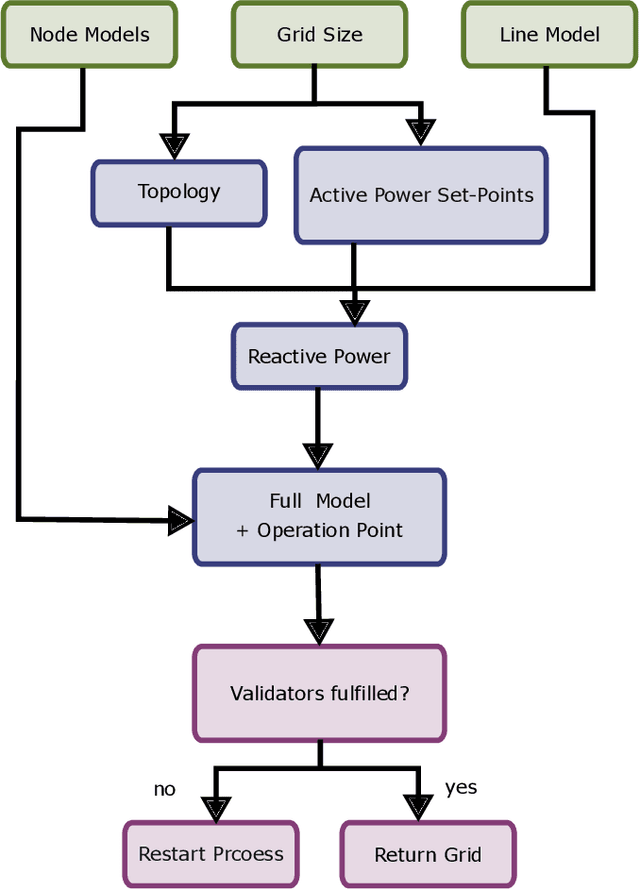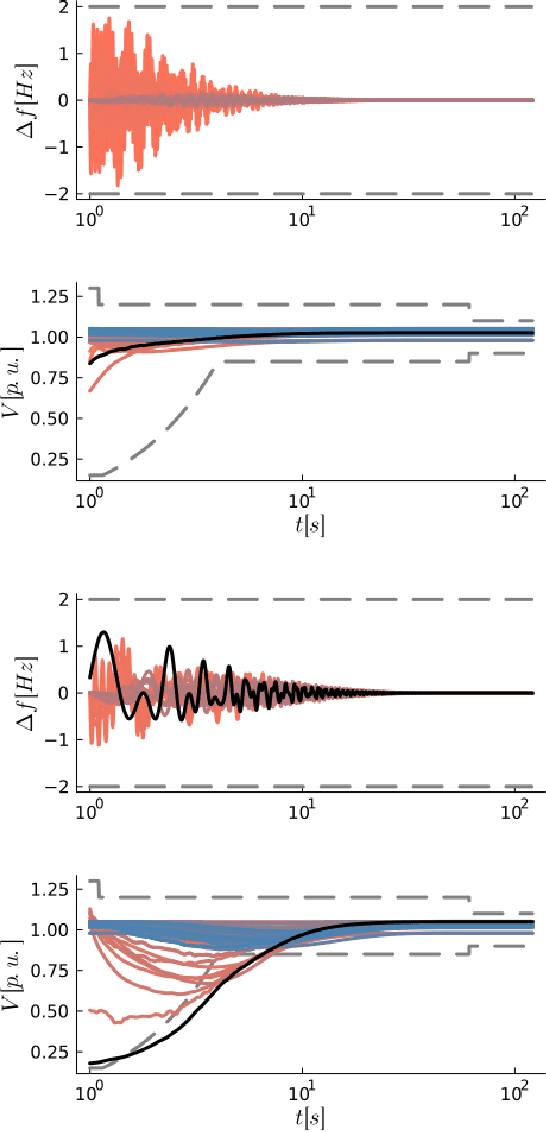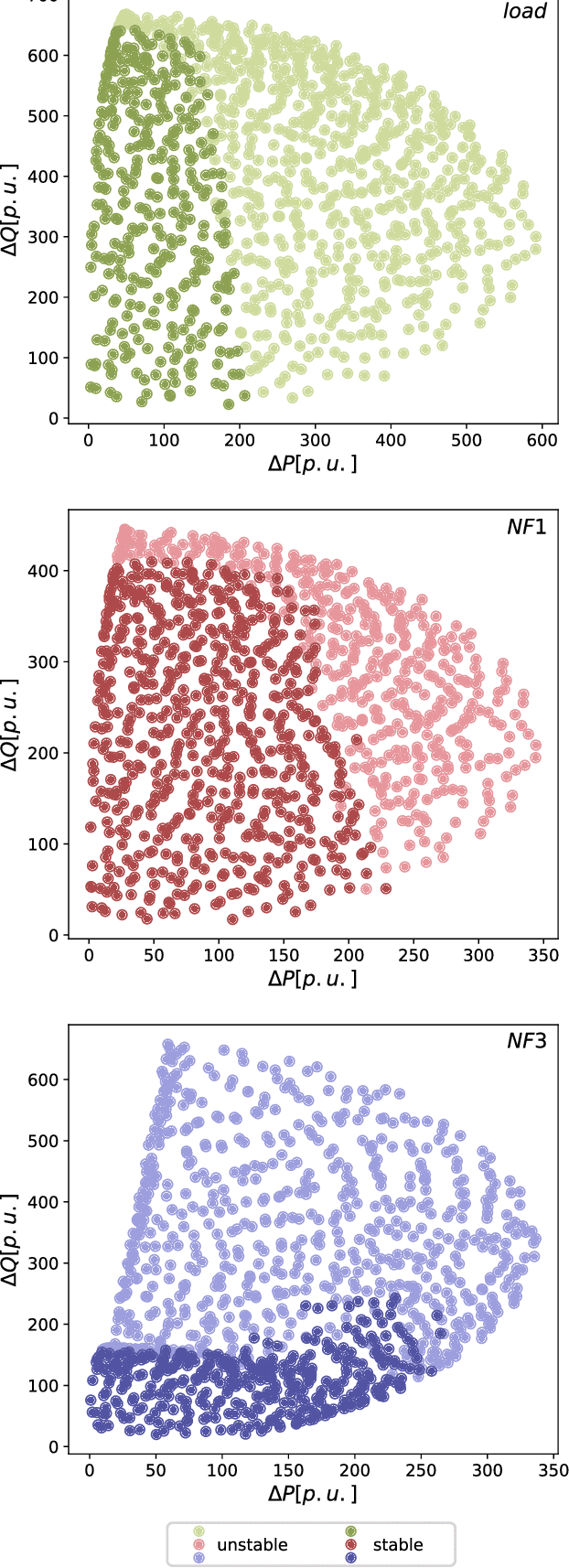Predicting Fault-Ride-Through Probability of Inverter-Dominated Power Grids using Machine Learning
Paper and Code
Jun 13, 2024



Due to the increasing share of renewables, the analysis of the dynamical behavior of power grids gains importance. Effective risk assessments necessitate the analysis of large number of fault scenarios. The computational costs inherent in dynamic simulations impose constraints on the number of configurations that can be analyzed. Machine Learning (ML) has proven to efficiently predict complex power grid properties. Hence, we analyze the potential of ML for predicting dynamic stability of future power grids with large shares of inverters. For this purpose, we generate a new dataset consisting of synthetic power grid models and perform dynamical simulations. As targets for the ML training, we calculate the fault-ride-through probability, which we define as the probability of staying within a ride-through curve after a fault at a bus has been cleared. Importantly, we demonstrate that ML models accurately predict the fault-ride-through probability of synthetic power grids. Finally, we also show that the ML models generalize to an IEEE-96 Test System, which emphasizes the potential of deploying ML methods to study probabilistic stability of power grids.
 Add to Chrome
Add to Chrome Add to Firefox
Add to Firefox Add to Edge
Add to Edge